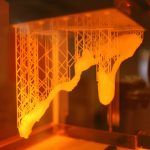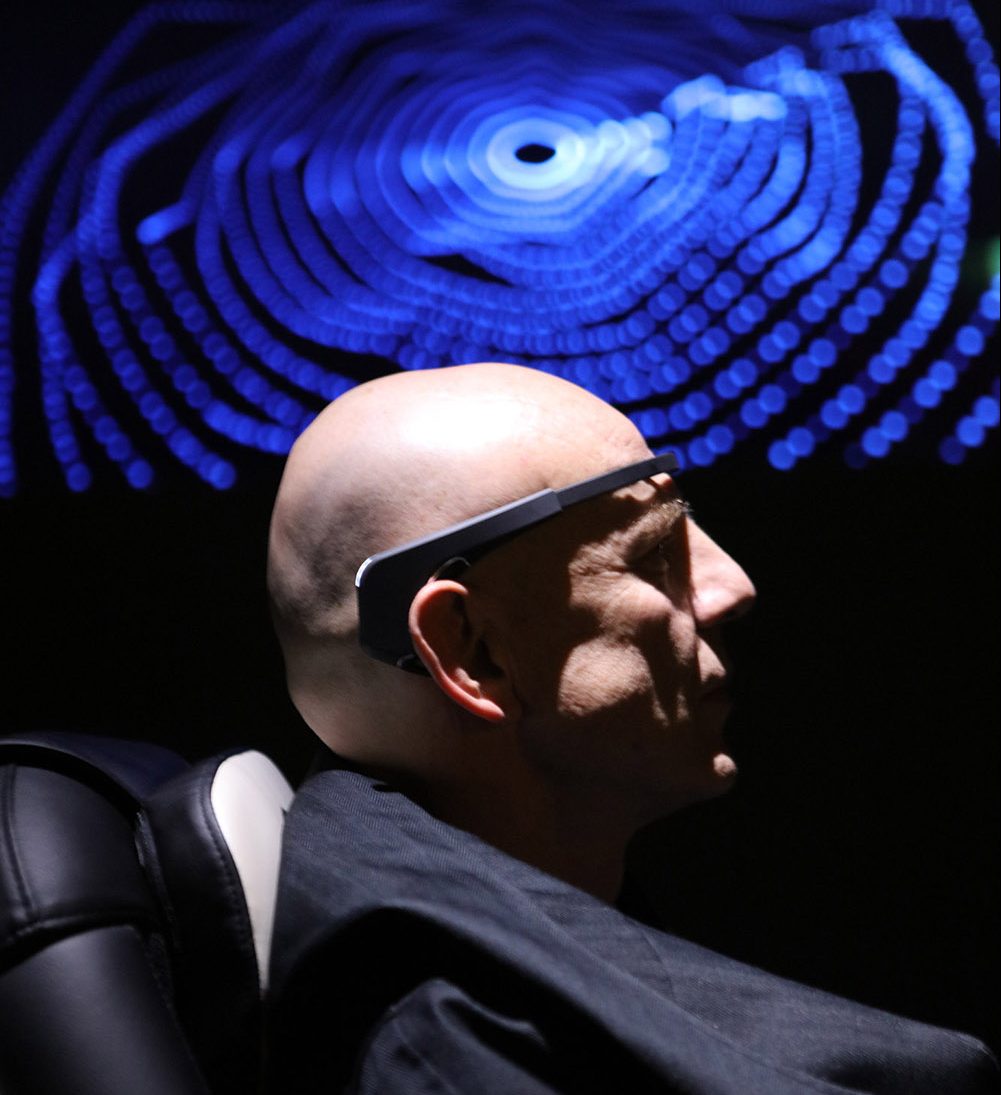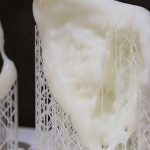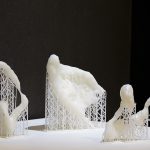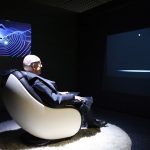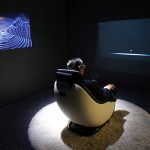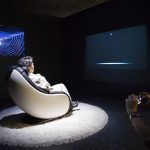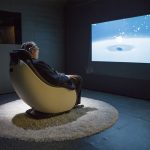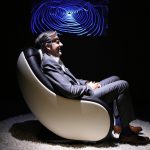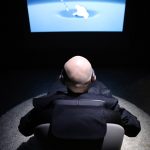Brain Factory Prototype 2
Maurice Benayoun, Tobias Klein | Brain Factory, 2016 Interactive
music: Jean-Baptiste Barrière,
Exhibitions:
- Microwave 2018 (Hong Kong City Hall Gallery, Oct. 25 2018)
- Asia Society, Nuits des Idées, (Hong Kong, Feb. 2018)
- QUT Museum, (Brisbane, 2017)
- Art Center Nabi, Why AI still Needs Us? (2017, Seoul, Korea)
- Bains Numériques Biennial (2016, France)
Brain Factory is an installation that allows the audience to give a shape to human abstractions through Brain-Computer Interaction (BCI), and then to convert the resulting form into a physical object. The work examines the human specificity through abstract constructs such as LOVE, FREEDOM, and DESIRE. The project articulates the relationship between thought and matter, concept and object, humans and machine.
Brain Factory uses Electroencephalography (EEG) data captured by BCI. As a brain activity is unique, we developed a novel calibration process of the individual data readings and associated emotional responses within a framework of binary outcomes. This is key for a real-time feedback – a biofeedback – between the virtual generative processes and the brain’s associated response. The calibrated communication between machine and human enables the reification, materialization and the sublimation (conversion of matter into data) of emotional responses to shapes, forms, and reified objects. Forms are generated using particle systems submitted to an overview of human thoughts. To survive in a brain-based ecosystem, the evolutionist biomorphic model tries to find the best form according to the original concept to be shaped. The Brain factory fundamentally questions the cultural contextualization of forms associated with abstract concepts such as LOVE or FREEDOM, freed from the iconography, and articulates an underlying, semi-sub-conscious formal response.
The genealogy of each resulting form is collected as well as its cDNA (DNA of concept), defined by the neuro-design process. The next iteration of brain readings associated with the same abstraction, will inherit part of the previous cDNA, thus forming a more elaborate (universal?) organism and form. This process of sublimation and reification raises an acute question about the relation between thought and matter, work and art, assessment and control, as keys in our new digitally enhanced power over the physical world.
The project narrates a new relationship between humans and machine. It raises questions about the nature of human thoughts and the role of humans in the age of control and sublimated materialism. The title Brain Factory suggests humans may have to understand the specific agency of their brain-power in the age of artificial intelligence just as robots served the role as human hands in the industrial age.
Brain Factory Prototype 2
Interactive Installation EEG 3D Printing




